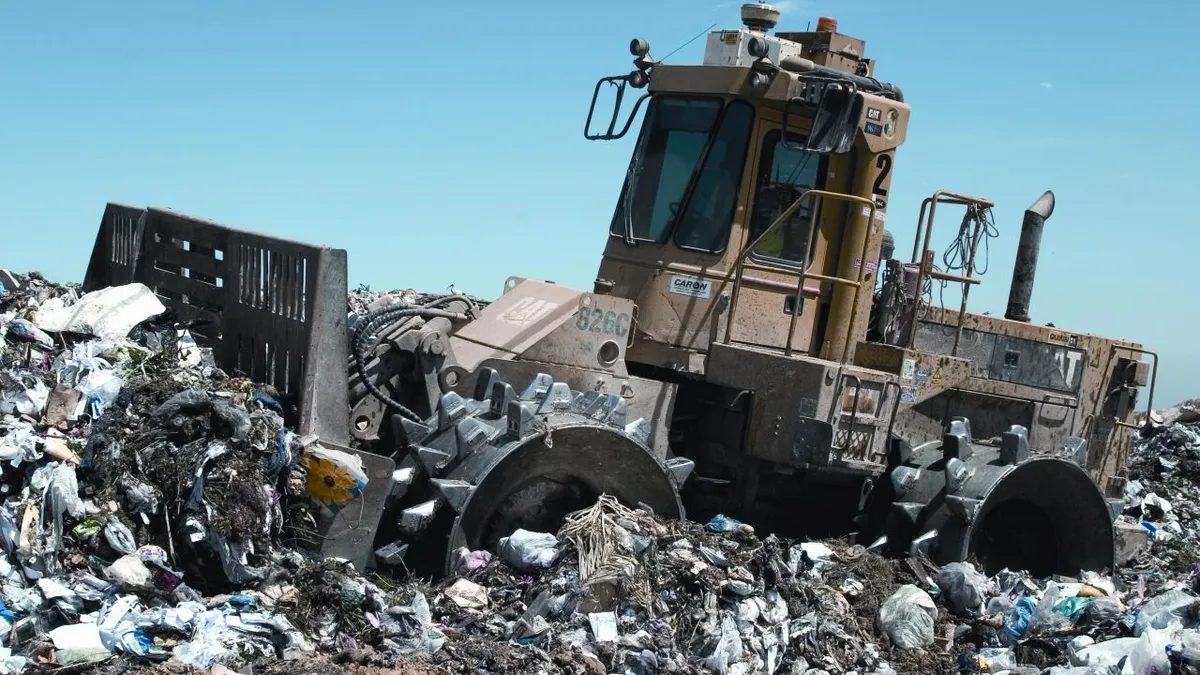Dive Brief:
- As of Oct. 21, Lane County, OR stopped accepting almost all plastic material at county-operated transfer stations, as reported in The Register-Herald. Only clear, plastic milk jugs are still accepted. Other plastic material will be sent to landfills. Lane County Waste Management Division Manager Dan Hurley said that the countywide restriction on accepting plastic material is temporary.
- A Recology-managed facility on San Juan Island, north of Seattle, stopped accepting mixed or co-mingled recycling, as reported in the San Juan Islander. The report also says that the town will likely have to stop curbside collection of recyclables within the next 30 days.
- Industry associations in Washington state are concerned, too. As reported by OPB, Brad Lovaas of the Washington Refuse and Recycling Association said that if China holds to its new import restrictions, "there will be no market for many of the things that we collect in our curbside and commercial recycling programs right now."
Dive Insight:
In part because of the region's high recycling rate, and in part because of proximity to Chinese markets, the Pacific Northwest will likely continue to feel the effect's of China's changing import policies in the months ahead. While other municipalities have limited some plastics — such as Madison, Wisconsin's limits on rigid plastics — the countywide move in Lane County on all but one type of plastic is one of the steepest restrictions so far. It may be the first of more to come in Oregon — a spokesperson for the Oregon Department of Environmental Quality recently told Waste Dive that the agency has received at least 15 requests to landfill recycled material.
China's tightening restrictions, 0.3% contamination standards and reticence to issue import licenses for scrap material are hurting stock and commodity prices. Now that local recycling operations are feeling more and more pressure from having the biggest purchaser of plastic step out of the market, the time for a smooth transition may be up. The major companies brushed concerns about China aside during second-quarter earnings reports, though it will be interesting to see if industry leaders can say the same thing when third-quarter earnings calls kick off later this week.
While it will be difficult, if not impossible, to counteract the lack of Chinese demand with domestic capacity in the near-term, leading industry voices are making some recommendations to ease the pain. The most consistent and straightforward one is to focus on contamination and produce the highest-quality possible bales. However, with a very real potential for more import restrictions coming down the pipeline, some think it may be time to look more closely at alternative markets abroad.














